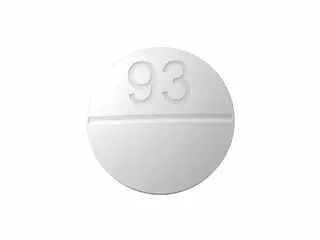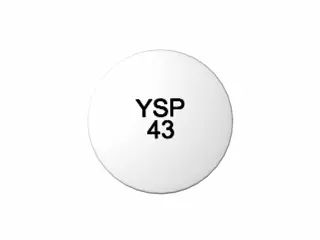Gastrointestinal Health
Discover a wide range of effective products to support and maintain your gastrointestinal health. From digestive enzymes and probiotics to remedies for indigestion, acid reflux, and bloating, find trusted solutions to improve digestion and enhance gut wellbeing. Buy now for better comfort and a healthier digestive system.
Gastrointestinal health is vital for overall well-being. Many people face issues like acid reflux, indigestion, irritable bowel syndrome (IBS), and diarrhea. Medications play a major role in managing these conditions effectively. Below is a review of popular medications used for gastrointestinal health, focusing on their benefits and common uses.
Aciphex (Rabeprazole) is a proton pump inhibitor (PPI). It reduces stomach acid production. It is commonly prescribed for GERD (gastroesophageal reflux disease), ulcers, and Zollinger-Ellison syndrome. Aciphex works quickly to relieve symptoms like heartburn and acid regurgitation. It is usually well-tolerated but may cause headache or nausea in some users.
Asacol (Mesalamine) is an anti-inflammatory drug used primarily to treat ulcerative colitis. It helps reduce inflammation in the colon. This medication supports long-term remission and controls flare-ups. Side effects are typically mild, including headache and abdominal pain.
Colospa (Mebeverine) is an antispasmodic medication. It relaxes intestinal muscles to relieve cramps and spasms in the gut. Colospa is often used in IBS treatment. It helps reduce pain and bloating efficiently. Colospa has minimal side effects, making it a good choice for sensitive patients.
Imodium (Loperamide) is an anti-diarrheal agent. It slows down bowel movements to reduce diarrhea frequency. Imodium is effective for acute and chronic diarrhea. It provides fast relief but should not be used if infection is suspected. Common side effects include constipation and mild abdominal discomfort.
Maxolon (Metoclopramide) enhances gastrointestinal motility. It is used to treat delayed stomach emptying, nausea, and vomiting. Maxolon helps improve digestion and reduce bloating. However, it may cause fatigue and nervous system effects in some users. Prolonged use requires medical supervision.
Motilium (Domperidone) works similarly to Maxolon. It stimulates stomach muscles to improve food movement. Motilium also relieves nausea and vomiting. Unlike Metoclopramide, it has fewer central nervous system side effects. Still, cardiac risks must be monitored during treatment.
Nexium (Esomeprazole) is a PPI like Aciphex. It is widely prescribed for acid reflux, stomach ulcers, and erosive esophagitis. Nexium effectively suppresses stomach acid, providing symptom relief and promoting healing. Side effects may include headache, diarrhea, or abdominal discomfort.
Pentasa (Mesalamine) is used for inflammatory bowel diseases. It delivers mesalamine directly to the intestines. Pentasa controls inflammation in ulcerative colitis and Crohn's disease. It supports long-term remission and reduces the risk of hospitalization.
Pepcid (Famotidine) is an H2 receptor blocker. It decreases acid production in the stomach. Pepcid is helpful for heartburn, GERD, and ulcers. It works faster than PPIs but is generally less potent. Side effects are rare but may include headache and dizziness.
Prevacid (Lansoprazole) is another PPI used to treat acid-related disorders. It helps heal stomach and esophageal ulcers. Prevacid is effective for long-term management of GERD symptoms. Side effects can include abdominal pain, constipation, and gas.
Prilosec (Omeprazole) is one of the most common PPIs. It reduces stomach acid production to treat GERD, ulcers, and Zollinger-Ellison syndrome. Prilosec promotes healing and prevents complications. Side effects may include headache, nausea, and abdominal pain.
Protonix (Pantoprazole) is a PPI used for erosive esophagitis and excessive stomach acid production. Protonix has a good safety profile and provides symptom relief. Common side effects are headache, diarrhea, and dizziness.
Reglan (Metoclopramide) is similar to Maxolon but more commonly used in the US. It improves gastric emptying and treats gastroparesis. Reglan also aids in nausea and vomiting control. Long-term use should be monitored for neurological effects.
Xifaxan (Rifaximin) is a non-absorbable antibiotic. It treats traveler’s diarrhea and hepatic encephalopathy. Xifaxan is also used for IBS with diarrhea symptoms. It reduces bacterial overgrowth in the intestines. Side effects are minimal and mostly gastrointestinal.
Each medication plays a distinct role in treating gastrointestinal issues. Proton pump inhibitors like Aciphex, Nexium, Prevacid, Prilosec, and Protonix are best for reducing stomach acid and healing ulcers. H2 blockers like Pepcid offer faster but milder acid reduction. For inflammation, mesalamine-based drugs like Asacol and Pentasa help manage ulcerative colitis and Crohn's disease.
Antispasmodics such as Colospa and motility agents like Maxolon, Motilium, and Reglan improve gut motility and relieve cramps and nausea. For diarrhea, Imodium and Xifaxan provide fast symptom control. Understanding the specific uses and side effects of each medicine helps choose the right treatment.
Always consult a healthcare professional before starting any medication for gastrointestinal conditions. Proper diagnosis and treatment tailored to the individual ensure better outcomes and reduce risks. Medication adherence and lifestyle changes, such as diet and stress management, further support gastrointestinal health.












